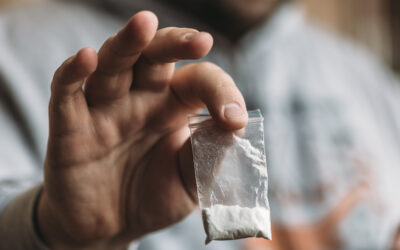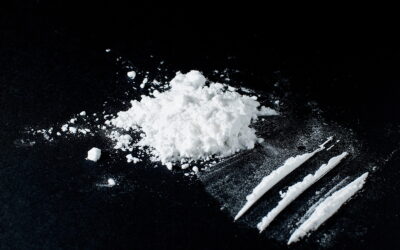“Rapid detox” refers to the accelerated process to rid the body of the drugs or alcohol being abused within addiction. Some of the reasons why people pursue rapid detox are concerns about excessive time off from work or the desire to have the discomfort period of detox shortened as much as possible. Also known as “anesthesia-assisted opiate detox,” rapid detox is a controversial procedure with a variety of critics within the field of recovery.
Rapid detox is not a completely standardized procedure across the recovery industry so centers that offer this service may differ in their approaches. Rapid detox usually involves sedating a patient (e.g. general anesthesia) during the initial withdrawal period. After sedation, the patient receives an opiate blocker such as naltrexone,1 perhaps in a very high dose. The sedation period is relatively short, between four to six hours, though there are records of anesthesia lasting longer. The entire rapid detox process may last between two to three days, with the time after anesthesia being a period of close medical observation.
How Do Centers Try to Speed Up Detox?
The timeline for detox is affected by many factors ranging from the substance to which someone is addicted to how long that addiction has lasted. A traditional medical detox may last as little as two days or may extend to a week or so.
The theory behind rapid detox is that a person is under anesthesia during the most intense withdrawal symptoms and this compresses the timeline of the process. One of the objections to this claim is that, depending on the person, the most severe withdrawal symptoms can occur days into the process, well after the early anesthesia treatment. In fact, many articles on recovery note that withdrawal symptoms may not even start until after 12 hours of abstinence.
Is Rapid Detox Safe?
There are a variety of health concerns attending the practice of rapid detox. First and foremost, there are questions of whether the accelerated detoxification will reduce the long-term success of recovery. If a person is discharged prior to the cessation of their worst withdrawal symptoms, will he or she relapse as a means to cope with the discomfort being felt?
The use of anesthesia for hours raises other concerns. Addicts have often done damage to their organs over the course of addiction and this may affect their tolerance to extended anesthesia. In 2012, the New York City Department of Health and Mental Hygiene reported three patients who were hospitalized due to severe issues stemming from anesthesia-assisted opiate detox.2 One of the three patients subsequently passed away. A further investigation at that clinic found that, of 75 people treated, two patients had died and five more patients were hospitalized. While examinations of other centers providing anesthesia-assisted detoxification did not find the same issues, “the New York State Department of Health, the New York Office of Alcoholism and Substance Abuse Services, and DOHMH jointly issued a Health Alert informing New York health-care providers of AAROD-associated serious adverse events and recommending that they avoid use of AAROD in favor of evidence-based options for opioid dependence treatment.”3 Likewise, the insurance company Aetna, commenting on ultra rapid detoxification (UROD), has stated “There is no scientifically-based evidence in the medical literature to substantiate that UROD is safe and effective as a clinical detoxification treatment. There is a reported risk of serious adverse events, including death with the use of anesthetics, making the risk:benefit ratio of this detoxification procedure unacceptable. Besides direct causality associated with inadvertent anesthetic overdose, there is also the risk of indirect causality related to possible aspiration and choking from emesis that may occur when an anesthetized or heavily sedated individual is detoxified while asleep.”4
Clinical Research
As mentioned above, there are limited clinical studies regarding rapid detox. This lack of a substantial research foundation leads some doctors in the recovery community to question whether the process can be considered an evidence-recommended solution for addiction recovery.
Problems with Rapid Detox Marketing
Critics of rapid detox worry about the misrepresentation of recovery treatment as a “quick fix.” Successful escape from addiction is a process with many steps. Detox is a typical first step but there are additional steps on the journey. Completion of detox should be followed by counseling that focuses on healthy psychological and physical habits. Detox may rid the body of a substance that had been abused but there is more to addiction than drugs or alcohol. There are issues of unproductive coping mechanisms and unhealthy social networks that may increase the likelihood of relapse if left unaddressed.
CITATIONS
- Wendy Manwarren Generes. “Health Risks of Rapid Detox: Relapse and Death.” American Addition Centers. (Oct 21, 2022). https://americanaddictioncenters.org/drug-detox/dangers-of-rapid-detox
- “Deaths and Severe Adverse Events Associated with Anesthesia-Assisted Rapid Opioid Detoxification — New York City, 2012.” Centers for Disease Control and Prevention. (September 27, 2013). https://www.cdc.gov/mmwr/preview/mmwrhtml/mm6238a1.htm
- Ibid.
“Ultra Rapid Detoxification (UROD).” Clinical Policy Bulletin Number 0317. Aetna. (February 13, 2023). https://www.aetna.com/cpb/medical/data/300_399/0317.html





